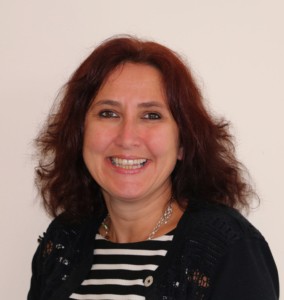
Charlotte Chisnell, the programme co-ordinator for the Bachelor of Social Work and the Bachelor of Social Work (Honours) degrees at EIT | Te Pūkenga, has been promoted to Principal Academic Staff Member (PASM).
Charlotte Chisnell, an experienced social work lecturer and researcher, has been promoted to Principal Academic Staff Member (PASM) by EIT | Te Pūkenga.
Charlotte, who is the programme co-ordinator for the Bachelor of Social Work and the Bachelor of Social Work (Honours) degrees, says she is delighted and appreciative of being recognised as PASM.
“I’m excited about it because I really want to be able to develop my role as PASM.”
“I’m also excited about developing my research, and in relation to how I can develop more networks. I really enjoy collaborative research and supporting new and emerging researchers.”
Originally from the UK, Charlotte has been a social worker for 30 years and joined EIT in 2017 as a social work lecturer, before becoming programme co-ordinator three years ago.
Research is a big focus for Charlotte and she received the Chief Executive’s Research Excellence Award for 2022 the standard of work she has produced.
A key to the research she does is about “promoting mostly young people’s rights, giving young people and vulnerable communities a voice. I think that’s really important.”
Charlotte has also co-authored two textbooks, but since she has been in New Zealand, she has developed a focus around specific areas of research.
“We’ve looked at young carers and what that means. Raising awareness about young people who provide a significant amount of whānau care, that’s often not recognised, particularly maybe for a parent. And as an impact of that, unfortunately, sometimes these young carers don’t do quite so well academically, but they don’t recognise that they’re young carers. They also don’t tell us they’re struggling until it gets to a point where they’re not doing so well.”
Along with former colleague, Sarah Elliot, Charlotte has also been looking at the issue of child sexual exploitation.”
“Sarah and I have done a reflective piece around child sexual exploitation. We’ve also just undertaken a qualitative piece of work with Oranga Tamariki, where we’ve got permission to interview 16 child protection social workers about their understanding and knowledge of child sexual exploitation in Aotearoa, looking at what people’s awareness is, and what possibly we need to know. So that’s in process and we’re going do an article on that as well.”
Charlotte says she is also pleased to be working on creating one unified Social Work degree for EIT | Te Pūkenga.
“I’m one of the transition leads, so that’s really important as well, to be able to really promote the work that EIT does within that whole process of the unified degree.”
“We are going to be delivering one degree across the sector, so it’s really important that EIT has a voice in that, and we have. We’ve had representation from our programme, in terms of course design, and the transition, and so on to this really important next stage is that we make that transition in a really consistent and strength-based way. And it’s exciting, the new degree is going to be exciting.”
EIT|Te Pūkenga Head of the School of Education and Social Sciences, Gwenda Kevern, says: “EIT | Te Pūkenga is very lucky to have Charlotte as both a lecturer and programme co-ordinator for the BSW and BSW Honours programmes. Charlotte is passionate about social work and tertiary teaching and always has a positive attitude to her work.”
“She is an excellent teacher and leader and is always keen to share her expertise with others within EIT and the wider Te Pūkenga network. Charlotte has led in research both with her own projects and in working collaboratively with new and emerging researchers and students and is establishing an international and national voice in her areas of research interest.”
“Congratulations, Charlotte!”
